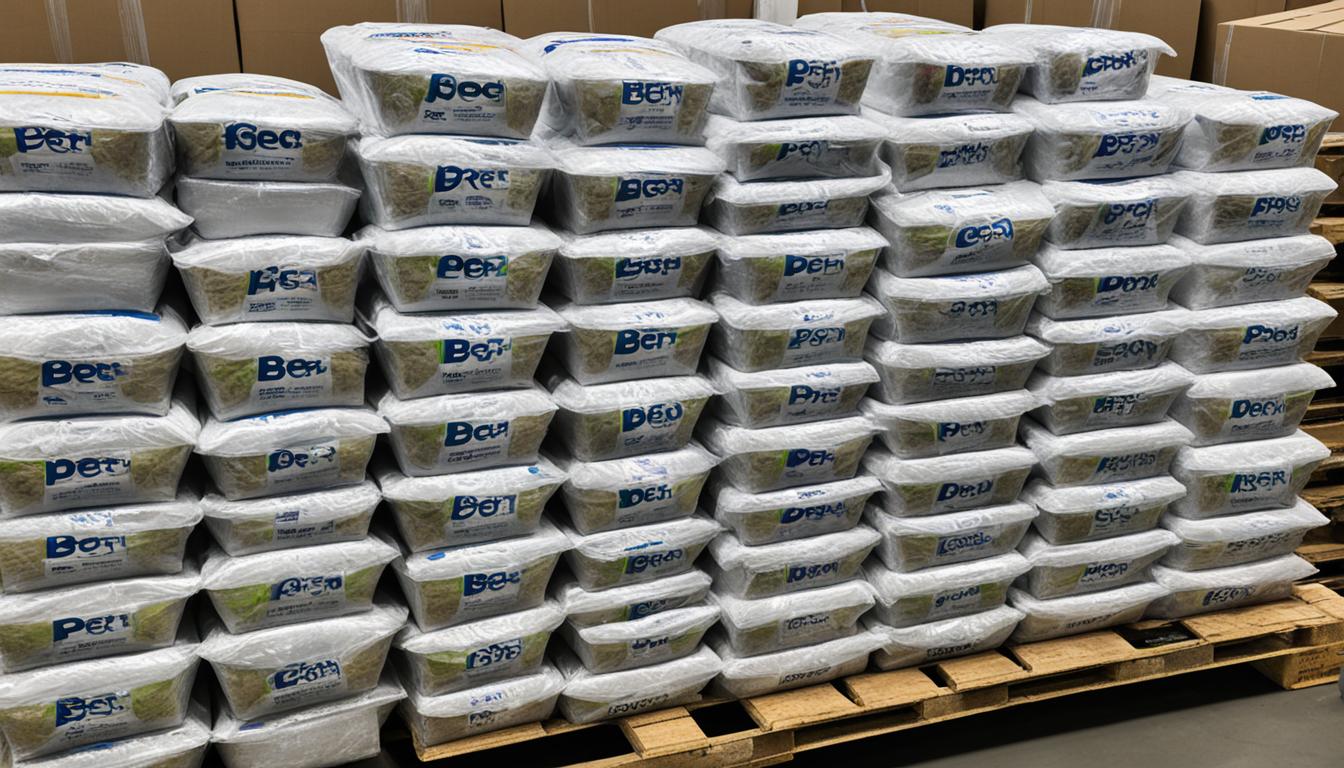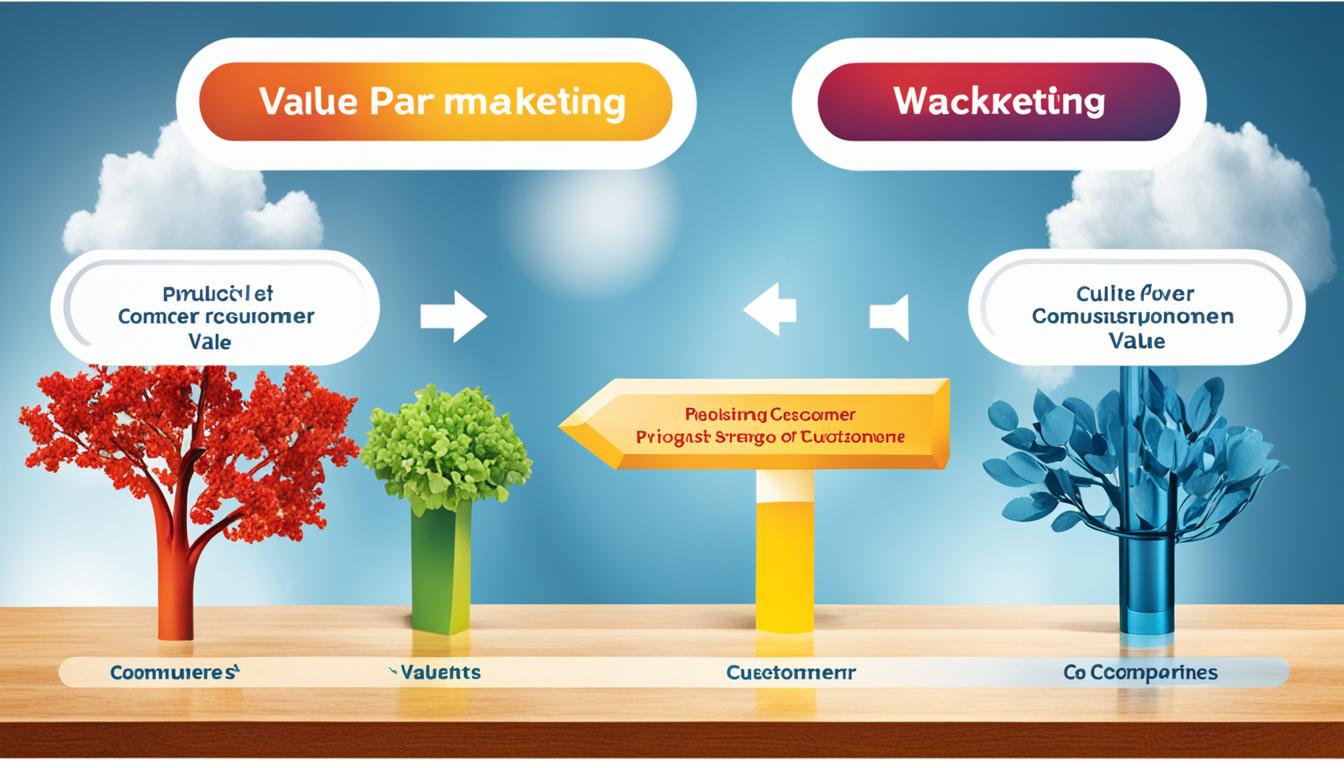Fractional marketing is a strategic approach that allows companies to outsource specific marketing tasks or responsibilities to expert specialists or agencies on a part-time or project basis. Instead of maintaining a full-time in-house marketing team, companies can tap into the expertise of external professionals, optimizing costs and maintaining flexibility.
For small businesses and startups, fractional marketing provides a cost-effective solution to access specialized skills and knowledge without the need for a dedicated team for each marketing function. By hiring fractional marketing agencies or consultants, companies can focus on their core business while benefiting from targeted marketing efforts.
Whether it’s social media campaigns, digital advertising, content creation, or other marketing components, fractional marketing allows businesses to assemble a team of experts tailored to their specific needs and budget.
Let’s explore some examples of how fractional marketing can be implemented:
Key Takeaways:
- Fractional marketing involves outsourcing specific marketing tasks to external experts or agencies on a part-time or project basis.
- It enables companies to access specialized skills and knowledge while optimizing costs and maintaining flexibility.
- Small businesses and startups can benefit from fractional marketing by tapping into targeted marketing efforts without the need for a dedicated in-house team.
- Examples of fractional marketing include hiring agencies or consultants for social media campaigns, digital advertising, content creation, and more.
- Fractional marketing allows businesses to assemble a customized team of experts tailored to their specific needs and budget.
What Does Fractional Mean in Business?
In business, the term “fractional” refers to a unique employment arrangement where a part-time employee shares their time, expertise, and services with multiple companies. Unlike full-time employees, fractional employees work for only a fraction of the time within each organization. This model allows businesses to access the skills and services of expert specialists on a part-time or project basis, rather than hiring a full-time marketing team.
When it comes to fractional marketing, companies have the option to hire expert specialists or agencies for specific marketing functions instead of maintaining an in-house marketing team. By doing so, they can tap into the specialized knowledge and skills of these fractional employees while optimizing costs and maintaining flexibility.
For example, a company may hire a fractional marketing agency to handle their social media campaigns, a freelance copywriter for content creation, and a digital advertising specialist for targeted ad campaigns. This approach is particularly beneficial for small to medium-sized businesses that may not have the resources to maintain a full-time marketing team for every function.
By leveraging fractional marketing, businesses can access the expertise they need to effectively market their products or services without the need for a dedicated full-time marketing team. It offers a cost-effective solution that allows companies to receive specialized marketing support on a part-time basis.
Advantages of Fractional Marketing
- Access to Expert Specialists: By hiring fractional employees, companies gain access to experts in specific marketing functions who can provide tailored strategies and execution.
- Cost Optimization: Fractional marketing allows businesses to avoid the high costs associated with maintaining a full-time marketing team, making it a more cost-effective solution.
- Flexibility: Companies can scale their marketing efforts up or down as needed by hiring fractional employees on a project or part-time basis.
- Specialized Skills: Fractional marketing provides access to specialized knowledge and skills that may not be available within the company’s existing team.
By understanding the concept of fractional marketing and its benefits, businesses can make informed decisions about their marketing strategies and tap into the expertise of fractional employees to drive their success.
How Does Fractional Marketing Work?
Fractional marketing is a strategic approach that involves outsourcing specific marketing tasks or responsibilities to external specialists or agencies. By doing so, companies can gain access to specialized skills and expertise without the need for a full-time in-house marketing team for each function. This not only allows businesses to optimize costs but also provides them with the flexibility to scale their marketing efforts based on their needs.
The process of fractional marketing begins with identifying the specific marketing tasks or projects that require specialized skills. Companies can then hire external experts on a part-time or project basis to handle these tasks. For example, a company may choose to partner with a fractional marketing agency to manage their social media campaigns, outsource their digital advertising to another agency, and hire a freelance copywriter to create engaging blog content.
By adopting a modular approach to marketing, companies can tap into the expertise they need, when they need it. This enables them to optimize costs by only paying for the specific marketing services they require, rather than maintaining a full-time team for each function.
Additionally, fractional marketing offers the advantage of flexibility. Companies can easily adjust their marketing resources based on changing business needs, seasonal demands, or the introduction of new marketing initiatives. This level of flexibility allows businesses to stay agile and responsive in a fast-paced and dynamic market environment.
| Benefits of Fractional Marketing |
|---|
| Access to specialized skills and expertise |
| Cost optimization by only paying for specific services |
| Flexibility to scale marketing efforts based on needs |
| Agility to adapt to changing market conditions |
Why You Need a Fractional CMO at the Helm
While any marketing discipline can fit the fractional model, one role that many companies take a fractional approach to fill is the Chief Marketing Officer (CMO) role. A fractional CMO is an experienced, senior-level leader who develops a comprehensive marketing strategy and plan. Hiring a full-time in-house CMO can be costly, especially for small to medium-sized companies. By hiring a fractional CMO, these companies can access the expertise and leadership of a CMO without the full-time salary commitment. The fractional CMO focuses on high-value efforts such as strategy development and direction, while tactical specialists handle execution.
The Benefits of Hiring a Fractional CMO
A fractional CMO brings a wealth of knowledge and experience to the table. Here are some key reasons why you need a fractional CMO at the helm of your marketing strategy:
- Growth Mindset: A fractional CMO has a growth mindset and understands how to drive growth through effective marketing strategies.
- Comprehensive Marketing Plan: A fractional CMO develops a comprehensive marketing plan that aligns with your business goals and objectives.
- Expertise and Leadership: A fractional CMO brings expertise and leadership to your marketing efforts, ensuring you have a seasoned professional guiding your strategy.
- Cost Optimization: Hiring a fractional CMO is a cost-effective solution compared to hiring a full-time CMO, especially for smaller companies with limited budgets.
- Flexibility: With a fractional CMO, you have the flexibility to scale your marketing efforts according to your needs without the long-term commitment of a full-time hire.
Achieving Success with a Fractional CMO
When working with a fractional CMO, it’s essential to establish clear communication channels and set expectations. Collaborate with your fractional CMO to define your target audience, identify key performance indicators (KPIs), and outline the desired outcomes for your marketing initiatives. Be open to their insights and recommendations, as they bring a fresh perspective and extensive industry knowledge to the table.
The Role of a Fractional CMO vs. In-house CMO
| Role | Fractional CMO | In-house CMO |
|---|---|---|
| Cost | Cost-effective, no full-time salary commitment | Expensive, full-time salary commitment |
| Responsibilities | Focus on strategy development and direction | Handle all marketing responsibilities |
| Expertise | Brings specialized knowledge and experience | Brings specialized knowledge and experience |
| Flexibility | Scalable and adaptable to changing needs | May struggle to adapt to changing needs |
When It’s Time to Hire a Fractional CMO
Hiring a Fractional CMO can be a game-changer for companies with a growth mindset but are struggling to achieve their goals. There are several common triggers that indicate the need for a fractional CMO:
- Experiencing a poor return on investment (ROI) on marketing efforts.
- Lacking a comprehensive and proactive strategic marketing plan.
- Having an undefined or inconsistent brand.
- Relying solely on outbound sales efforts for growth.
- Not generating a predictable stream of leads.
When companies encounter these challenges, it’s a clear sign that they need the expertise and guidance of a fractional CMO. With their strategic mindset and experience, fractional CMOs can provide the necessary direction to revamp marketing strategies and overcome obstacles.
Let’s dive deeper into each trigger:
1. Poor ROI on Marketing Efforts
A fractional CMO can help analyze and optimize marketing initiatives to improve ROI. They have the knowledge and skills necessary to identify areas where investments are falling short and make data-driven recommendations for improvement.
2. Lack of a Comprehensive and Proactive Strategic Marketing Plan
A comprehensive marketing plan is crucial for success. Fractional CMOs specialize in developing tailored strategies aligned with business objectives. They can create a roadmap that encompasses all aspects of marketing, ensuring a cohesive and effective approach.
3. Undefined or Inconsistent Brand
A strong brand is vital for attracting and retaining customers. A fractional CMO can work with company stakeholders to define the brand identity, develop consistent messaging, and establish brand guidelines. This helps create a unified brand image that resonates with the target audience.
4. Over-Reliance on Outbound Sales Efforts for Growth
A well-rounded marketing strategy goes beyond outbound sales efforts. A fractional CMO can implement inbound marketing techniques, such as content marketing and lead nurturing, to generate a more predictable and sustainable stream of leads.
5. Lack of Predictable Lead Generation
Without a steady flow of leads, businesses may struggle to grow. Fractional CMOs have the expertise to implement lead generation strategies that focus on attracting qualified leads, nurturing them through the sales funnel, and ultimately converting them into customers.
By addressing these triggers and hiring a fractional CMO, companies can benefit from a comprehensive marketing plan, predictable lead generation, and steady progress towards their growth objectives.

What to Look for in a Fractional CMO (and Supporting Team)
When hiring a fractional CMO (or other fractional team members), it is important to consider several key factors that contribute to their effectiveness. These factors include their strategic mindset, proven track record of results, established processes, willingness to work with existing systems, solid relationship-building skills, and ability to deliver measurable ROI.
A fractional CMO should possess extensive experience in marketing strategy development and direction. They should be able to provide leadership to a team of tactical specialists, guiding them towards achieving the company’s marketing objectives. With their strategic mindset, they can identify opportunities, analyze market trends, and develop innovative approaches that drive growth.
A proven track record of results is essential when hiring a fractional CMO. They should have a track record of implementing successful marketing strategies that have contributed to revenue growth and lead generation. By assessing their past achievements, you can gain confidence in their ability to deliver impactful results for your business.
In addition to results, the fractional CMO and their supporting team should have established processes in place. These processes ensure efficiency and consistency in executing marketing initiatives. They should be able to seamlessly integrate with your existing systems and understand your unique business requirements, allowing for a smooth transition and collaboration.
Relationship-building skills are crucial for a fractional CMO. They should be able to establish strong partnerships with internal stakeholders, external partners, and customers. Building relationships fosters trust and enables effective collaboration, leading to the successful implementation of marketing strategies and initiatives.
Finally, a fractional CMO should have the ability to deliver measurable ROI. They should be familiar with the latest marketing technologies and trends, enabling them to recommend and optimize existing tools to maximize results. By implementing data-driven strategies, they can track key metrics and provide insights into the effectiveness of marketing initiatives.
Overall, when searching for a fractional CMO and their supporting team, consider their strategic mindset, proven track record, established processes, willingness to work with existing systems, solid relationship-building skills, and ability to deliver measurable ROI. By focusing on these aspects, you can ensure that you are partnering with professionals who will drive the success of your marketing strategy.
Factors to Consider When Hiring a Fractional CMO (and Supporting Team)
| Factor | Description |
|---|---|
| Strategic Mindset | The ability to develop innovative and effective marketing strategies that align with business objectives. |
| Proven Track Record | A history of achieving measurable results and contributing to revenue growth and lead generation. |
| Established Processes | Efficient and consistent processes in place that integrate with existing systems and adapt to unique business requirements. |
| Willingness to Work with Existing Systems | The ability to seamlessly integrate with and leverage the company’s current marketing infrastructure. |
| Relationship-Building Skills | The capability to establish strong partnerships with internal stakeholders, external partners, and customers. |
| Ability to Deliver Measurable ROI | The proficiency in utilizing marketing technologies and data-driven strategies to track key metrics and demonstrate return on investment. |
The Fractional Marketing Stack
The fractional marketing stack is a strategic approach that involves hiring fractional marketing experts across various verticals to build an adaptive marketing strategy. This flexible framework allows brands to leverage the right resources at the right time, place, and channel to effectively engage target audiences and deepen brand affinity.
The fractional marketing stack typically consists of a fractional Chief Marketing Officer (CMO) and specialists in key areas such as email marketing, paid search, organic search, content marketing, and more. By assembling this team of fractional marketing experts, brands gain access to a broader range of knowledge and expertise, enhancing their marketing efforts.
With a fractional CMO at the helm, companies can develop a comprehensive and cohesive marketing strategy that aligns with their growth objectives. The fractional CMO provides strategic guidance and direction, ensuring that the various marketing initiatives work together seamlessly to achieve desired outcomes.

By adopting the fractional marketing stack, brands can tap into a flexible and scalable framework that allows them to adapt and optimize their marketing efforts in real-time. This approach enables businesses to remain agile in the face of changing market dynamics and customer preferences.
Furthermore, the fractional marketing stack offers cost advantages as companies only engage fractional experts for the specific areas they need assistance with, eliminating the need for a full-time marketing team for each function. This helps businesses optimize their marketing budget without compromising on the quality and expertise required to drive growth.
In summary, the fractional marketing stack empowers brands to navigate the complexities of the digital landscape by assembling a team of fractional marketing experts who possess specialized skills and knowledge. This approach fosters greater flexibility, cost optimization, and strategic alignment with growth objectives, enabling brands to stay competitive in today’s dynamic business environment.
The Rise Of The Fractional CMO
The fractional CMO role has seen a rise in demand as companies recognize the need for marketing strategies that can effectively reach and engage today’s digital-first consumers. A fractional CMO can develop marketing strategies that are data-driven and personalized, leveraging the latest apps and platforms to deliver targeted messaging. This role allows companies to benefit from the expertise and leadership of a CMO without the high cost of maintaining a fully-staffed marketing department. Fractional CMOs can make an immediate impact, providing strategic guidance and direction to drive growth.
Fractional CMO Benefits
By opting for a fractional CMO, companies can unlock several benefits:
- Data-Driven Strategies: A fractional CMO brings a wealth of experience in developing data-driven marketing strategies. They utilize analytics and market research to identify target audiences, optimize campaigns, and drive ROI.
- Personalized Experiences: Fractional CMOs understand the importance of personalization in today’s marketing landscape. They craft tailored messaging and experiences to resonate with consumers and build long-lasting relationships.
- Cost Optimization: Maintaining a fully-staffed marketing department can be expensive, especially for small to medium-sized businesses. Fractional CMOs offer a cost-effective solution by providing expert leadership without the financial burden of a full-time hire.
| Benefits of Fractional CMOs | Benefits of Fully-Staffed Marketing Department |
|---|---|
| Cost-effective | Access to diverse skill sets |
| Flexible engagement | Immediate availability for daily tasks |
| Expert strategic guidance | Comprehensive in-house knowledge |
| Specialized industry knowledge | Full-time commitment and availability |
As the marketing landscape evolves, the fractional CMO role will continue to play a vital role in helping businesses drive growth and stay ahead of the competition. By harnessing data-driven strategies and delivering personalized experiences, fractional CMOs offer a solution that aligns with the dynamic needs of today’s businesses.
Conclusion
Fractional marketing is a game-changer in today’s digital landscape. By outsourcing specific marketing tasks to expert specialists or agencies, companies can tap into specialized skills and knowledge without the burden of a full-time marketing team. This approach offers flexibility, cost optimization, and access to the expertise needed for growth.
One key aspect of fractional marketing is the fractional CMO. Hiring a fractional CMO provides strategic guidance and direction for the overall marketing function, allowing companies to leverage their skills and experience without committing to a full-time salary. This enables businesses to develop comprehensive marketing strategies and drive growth effectively.
The rise of the fractional marketing stack further enhances the effectiveness of fractional marketing. By assembling the right team of fractional marketing experts for specific initiatives, companies can build adaptive marketing strategies that align with their growth objectives. This flexible framework ensures that the right resources are deployed at the right time, maximizing results.
In summary, fractional marketing offers a cost-efficient and flexible approach to marketing. By outsourcing tasks, hiring fractional CMOs, and leveraging the fractional marketing stack, companies can optimize costs, access specialized skills, and drive growth. In today’s rapidly evolving digital landscape, fractional marketing is a powerful tool for businesses seeking to stay competitive and achieve their marketing goals.
FAQ
What is fractional marketing?
Fractional marketing is the practice of outsourcing specific marketing tasks or responsibilities to expert specialists or agencies on a part-time or project basis.
How does fractional marketing work?
Fractional marketing works by hiring external specialists or agencies for specific marketing tasks or responsibilities, allowing companies to access specialized skills and knowledge while optimizing costs and maintaining flexibility.
Why do companies need a fractional CMO?
Companies may need a fractional CMO to provide strategic guidance and direction for the marketing function, especially when experiencing poor ROI, lacking a comprehensive marketing plan, or not generating a predictable stream of leads.
When should companies hire a fractional CMO?
Companies should consider hiring a fractional CMO when they have a growth mindset but are not making headway in achieving their marketing goals, such as poor ROI, lacking a comprehensive marketing plan, or relying solely on outbound sales efforts for growth.
What should companies look for in a fractional CMO?
When hiring a fractional CMO, it is important to consider their strategic mindset, proven track record, established processes, willingness to work with existing systems, relationship-building skills, and ability to deliver measurable ROI.
What is the fractional marketing stack?
The fractional marketing stack refers to hiring fractional marketing experts across various verticals to build an adaptive marketing strategy, assembling the right team for specific initiatives.
Why is there a rise in demand for fractional CMOs?
The rise in demand for fractional CMOs is due to their ability to develop data-driven and personalized marketing strategies that effectively reach and engage today’s digital-first consumers.
How can fractional marketing benefit companies?
Fractional marketing allows companies to access specialized skills and knowledge while maintaining flexibility and optimizing costs, making it a cost-efficient approach to marketing.
What is the role of a fractional CMO?
A fractional CMO provides strategic guidance and direction for the overall marketing function, focusing on high-value efforts such as strategy development, while tactical specialists handle execution.








